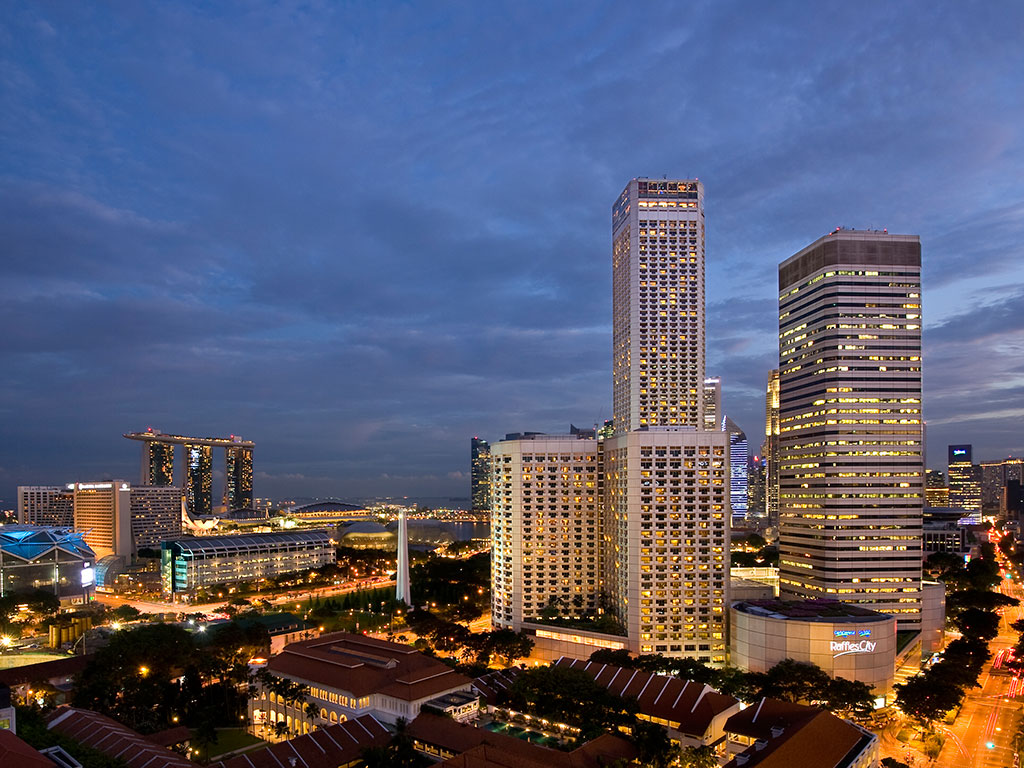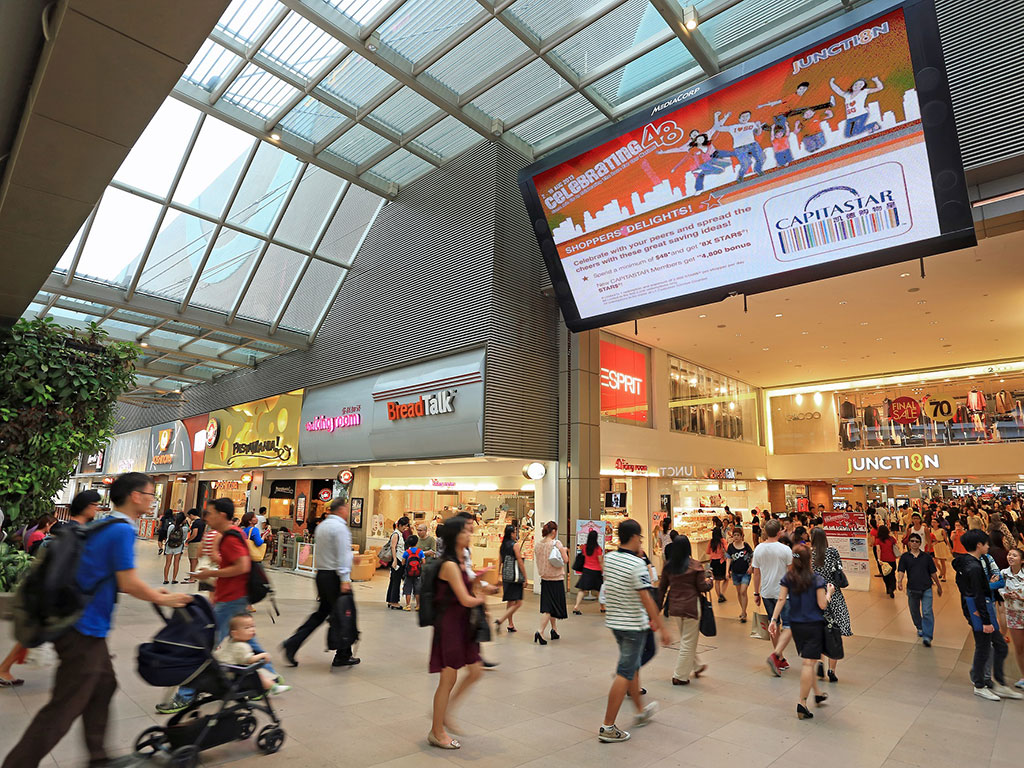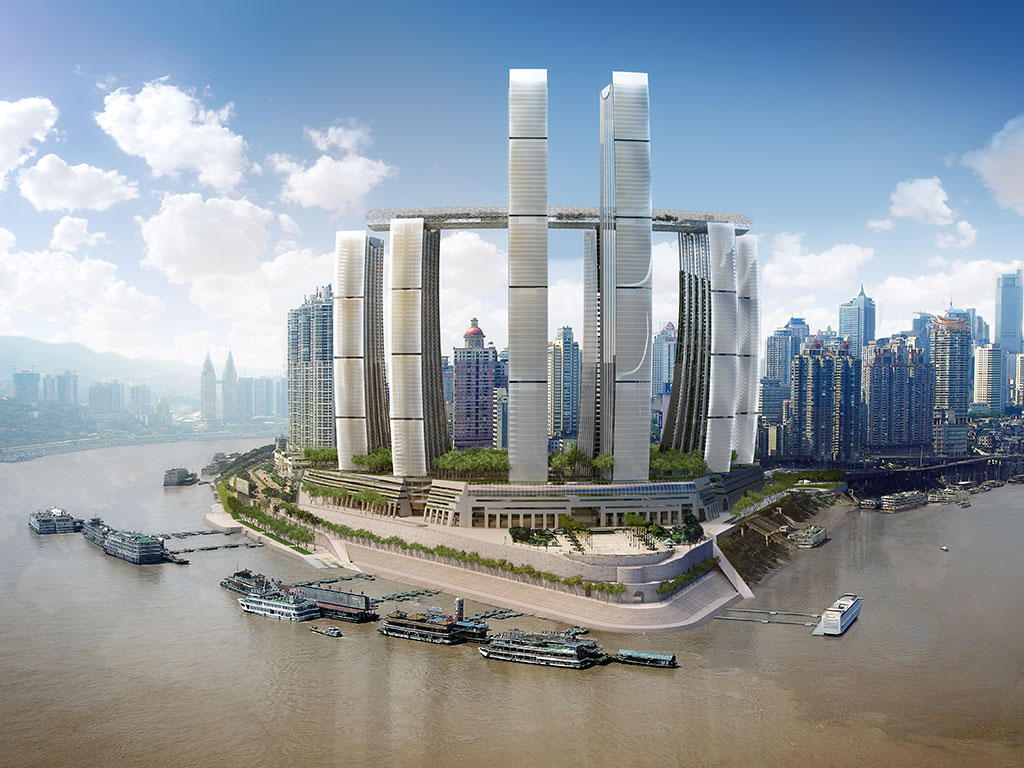Urbanisation in Asia
48%
Of Asia’s population lives in cities
64%
Of Asia’s population is expected to move into cities by 2050
Over half of the world’s population (54 percent) lives in urban areas. This figure is expected to rise to 66 percent by 2050, adding a further 2.5 billion people to the urban population, according to the 2014 World Urbanisation Prospects report by the United Nations. But this mass migration of people into the many metropolises dotted around the globe is much more pronounced in certain places. In fact, there are substantial levels of variability in urbanisation, with nearly 90 percent of it concentrated in Asia and Africa.
At the moment, the majority of Asia’s population still resides in rural dwellings. So far, 48 percent of Asia’s population already lives in cities and the continent is urbanising much faster than many other regions, with 64 percent expected to make the move into one of its ever-expanding metropolises by 2050. The core driver behind this boom is domestic migration as big cities’ economies continue to grow, drawing people from rural areas to venture into gateway cities to look for work.
Integrated developments

Raffles City Shanghai, China is CapitaLand’s first ‘Raffles City’-branded integrated development outside Singapore. Image by Cheah Kin Wa (Singapore), CapitaLand ‘Building People’ Photography Competition 2012
What makes a good integrated development is having an optimal mix of quality retail, hospitality, commercial and residential spaces, all seamlessly integrated
With rapid urbanisation, governments and city planners are placing greater emphasis on sustainable development – turning to integrated developments which optimise space and resource efficiencies. What makes a good integrated development is having an optimal mix of quality retail, hospitality, commercial and residential spaces, all seamlessly integrated to provide the day-to-day convenience and comfort for people to live, work and spend time in. Well-designed, well-built and well-managed projects located around key regional centres and transport hubs have done well and are expected to stay relevant over time. In today’s world, new developments are expected to generate more than just value for stakeholders, but help create jobs and improve the quality of urban life for the whole community. But balancing all these requires careful economic and financial planning and, if done correctly, these integrated development projects can help produce high value economic clusters for an entire city.
CapitaLand

Raffles City Singapore. The group currently has eight Raffles City integrated developments in China
20+
Number of countries with CapitaLand properties
SGD 12 billion
Combined value of CapitaLand’s Raffles City developments in China when completed
CapitaLand is one of Asia’s largest real estate firms that is listed in Singapore and focuses on integrated developments. The company leverages its significant asset base, design and development capabilities, active capital management strategies and extensive market network to develop high-quality real estate products and services.
Its diversified global real estate portfolio includes integrated developments, shopping malls, serviced residences, offices and homes. While CapitaLand’s portfolio of properties spans over 20 countries, Singapore and China remain its core markets, accounting for 84 percent of the group’s total assets (excluding treasury cash). Indonesia, Malaysia and Vietnam have been identified as new growth markets. The company also has one of the largest real estate fund management businesses with assets located in Asia.
In 2014, CapitaLand celebrated 20 years in China. In that time, it has managed to establish itself as one of the largest non-domestic real estate developers in in the People’s Republic, with a highly diverse portfolio of properties. Among its most recognisable brands are its Raffles City integrated developments, with the completed Raffles City Shanghai, Raffles City Beijing, Raffles City Ningbo and Raffles City Chengdu all massive landmarks in their respective cities. There is also development underway on another four Raffles City developments located in Hangzhou, Shenzhen, Changning in Shanghai and Chongqing. Once completed, CapitaLand’s Raffles City developments in China will have a combined value of over SGD 12 billion.
CapitaLand is in a position of strength to capitalise on the growing demand for integrated developments. It has established meaningful scale and track record in development and managing a diverse portfolio of properties. As ONE CapitaLand, it is determined to harness its collective competencies to realise the right opportunities in integrated projects.
Deepening its presence
Going forward, CapitaLand intends to develop a total of 12 more integrated developments, of which five would be in the city clusters of Beijing/Tianjin, Shanghai/Hangzhou/Suzhou/Ningbo, Guangzhou/Shenzhen, Chengdu/Chongqing and Wuhan in China, and another five in Singapore and major cities in ASEAN such as Kuala Lumpur in Malaysia, Ho Chi Minh City in Vietnam and Jakarta in Indonesia over the next three years. The group will also tap global markets such as the US and Europe through its wholly owned serviced residence business unit, The Ascott Limited.
Leveraging technology

CAPITASTAR, is CapitaLand’s multi-mall, multi-store card-less rewards programme that is benefitting 1.8 million members across 70 malls in Singapore, China, Malaysia, Japan and India
CAPITASTAR leverages on technology to provide the greatest convenience for shoppers who are increasingly tech-savvy
In recent years, the speed of technological advancement has been staggering, especially within the real estate market; impacting each and every part of the value chain. Construction technology in particular has sped up the time taken for projects to be completed, as well as improving the overall build quality – with clever tools that allow for better design and development.
Customers have also been empowered by technology, permitting better access to information regarding the company, product or service, whether the individual be a tenant, homebuyer or investor. The rapid proliferation of advanced technology has also changed the consumption habits of the consumer, making it essential to re-imagine physical spaces in order to ensure they remain relevant and desired.
It is why CapitaLand is committed to using technology to its advantage, delivering improved customer experiences that are capable of responding to changes in consumer habits, as well as helping its team unlock their creative potential.
CapitaLand has embarked on various initiatives, including the setup of an innovation hub in Singapore, as well as a lab to pilot test projects for its shopping mall business. It also launched CAPITASTAR, a multi-mall, multi-store card-less rewards programme, that is benefitting 1.8 million members across 70 malls in Singapore, China, Malaysia, Japan and India. CAPITASTAR leverages on technology to provide the greatest convenience for shoppers who are increasingly tech-savvy.
To sharpen its technology focus and customer-centric approach to develop real estate of the future, defined by greater interconnectivity, the company has formed the CapitaLand Technology Council consisting of high-calibre technology stalwarts to provide strategic inputs.
Leveraging technology partners, Ascott has led a consortium to invest in Tujia – China’s largest and fastest growing online apartment sharing platform, which has been dubbed the Chinese equivalent of US. home-rental website Airbnb. It has also formed a joint venture with Tujia to operate and franchise a new brand of serviced apartments in China.
Ascott is also set to embrace the Internet of Things technology to design a next generation serviced residence that will offer guests a seamless smart living experience. It has entered into an exclusive partnership with Samsung Asia Pte Ltd, a unit of Samsung Electronics , to jointly develop Internet of Things-ready smart solutions customised for its serviced residences, making Ascott the first global serviced residence company to embrace smart home technologies. Ascott aims to test bed the new technologies at selected serviced residences by the first half of 2016, with plans to roll out to its properties across over 20 countries globally in phases.
Reigniting capital management platforms

Raffles City Chongqing, China – a landmark integrated development with an expected total development cost of RMB21.1bn (about S$4.2bn). It is CapitaLand’s biggest single investment in China, and also the largest investment in a single development ever made by a Singapore company in the country
CapitaLand is proactively working with strong capital partners to boost its fund management business
Real estate is a capital intensive business and fund management is central to the active capital management strategy of CapitaLand as a dominant player in this industry. The company is proactively working with strong capital partners to boost its fund management business which will help it build up scale exponentially.
As at 30 June 2015, CapitaLand manages 17 real estate private equity funds and five real estate investment trusts (REITs) with AUM worth over SGD 44.1 billion. As real estate capital values rise with the growing intensity of competition for assets, CapitaLand’s deep presence in many key gateway cities, its strong fund management expertise as well as our established developer-owner-operator capabilities across various asset classes, from integrated developments, shopping malls, serviced residences, offices to homes, will allow the group to deliver better risk-adjusted returns for investors. CapitaLand’s strong balance sheet and stable of REITs – Ascott Residence Trust, CapitaLand Commercial Trust, CapitaLand Mall Trust, CapitaLand Retail China Trust and CapitaMalls Malaysia Trust – also give it the ability to stay invested for the long term in assets with longer gestation periods.
In July 2015, The Ascott Limited residence fund entered a 50:50 venture with the Qatar Investment Authority. The arrangement represents Ascott’s largest private equity fund to date. This is earmarked to be the first of six new funds possessing total assets under management (AUM) of more than SGD 10 billion that CapitaLand plans to launch by 2020. The move is just one of the ways that CapitaLand intends to develop its fund management business and build scale for the company.